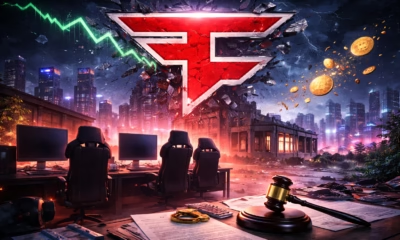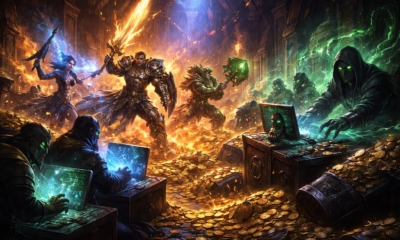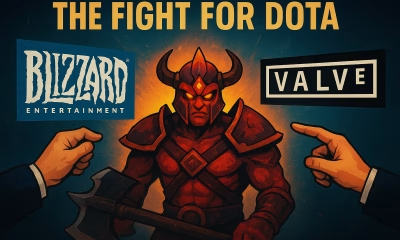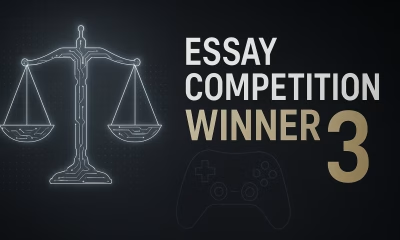Labor&Immigration
Does Esport have an Ageism Problem?
Ageism, a form of discrimination based on age, has been a persistent issue in various sectors, and the gaming industry is no exception. The prevailing stereotype is that video games and technology are predominantly the domain of the younger generation. This stereotype perpetuates the image of an older individual, often from the baby boomer generation, struggling with basic tech tasks, such as opening an email. This perception not only undermines the capabilities of older individuals but also creates a rift between them and advertisers who might overlook them as a potential demographic.

The Multifaceted Impact of Ageism
Ageism is a pervasive issue that transcends generations. While it is commonly associated with older individuals, the younger generation is not immune to its effects. These young individuals, often brimming with enthusiasm and armed with the latest technological know-how, are frequently sidelined due to perceptions of inexperience or a supposed lack of wisdom. Their tech-savviness, which should be an asset in many professional fields, sometimes becomes a double-edged sword. On one hand, it gives them a competitive edge, but on the other, it pigeonholes them into a stereotype of being “just tech-savvy” and not possessing the depth or breadth of knowledge. This duality poses challenges for them, as their voices and opinions might be overlooked or not taken as seriously as they should be.
Spotlight on Older Gamers
Kate Edwards, the former head of the International Game Developers Association, initiated the “50 over 50” list to honor and recognize older professionals in the gaming industry. This initiative aimed to shatter misconceptions about age and celebrate the wisdom and experience that come with it. Edwards remarked,
“Why can’t we celebrate age? Why can’t we celebrate wisdom and experience?”
Prominent older gamers, such as GrandpaGaming on Twitch and Shirley Curry on YouTube, have carved a niche for themselves. Curry, with her engaging Skyrim playthroughs, refers to her viewers as her “grandchildren,” showcasing the inclusive nature of the gaming community.
Cognitive Benefits of Gaming
Beyond entertainment, video games have been researched for their potential cognitive benefits. A game called NeuroRacer, developed by researchers at UC San Francisco, was designed to enhance cognitive control. The game, which demands extensive multitasking, becomes progressively challenging. Players, including older individuals, showed improved cognitive skills, even outperforming a control group of younger players.
The Need for Diverse Gaming Content
The gaming industry needs to recognize and cater to its older demographic. While there are games designed for children and broader audiences, there’s a gap when it comes to content tailored for older players. This demographic represents untapped potential and a lucrative market for developers willing to innovate.
Karina Tama, a Forbes contributor, emphasizes that while older individuals might not be as tech-savvy as the younger generation, they are adept at basic online navigation. Engaging with this demographic requires genuine communication that acknowledges and validates their experiences.
Breaking Age Barriers in Esports: The Inspiring Tale of DieHardBirdie and the SilverSnipers
Despite 19% of gamers being over 50, esports tournaments predominantly feature younger players. The Silver Snipers, an esports organization, is challenging this norm. Touted as the world’s first professional senior CS:GO team, they aim to prove that age isn’t a barrier to high-level esports. With players averaging 66 years of age and some as old as 75, they are redefining the age norms in esports.
DieHardBirdie, at 80 years old is not your typical esports player. An artist for the majority of his life, he has celebrated his creativity through metal, stone, and paper sculptures. However, about five years ago, he ventured into the world of esports, specifically the game Counter-Strike, with his team, Silver Snipers.
DieHardBirdie and his team shattered stereotypes when they triumphed over their opponents on the global stage. His demeanor throughout the championship was a masterclass in grace under pressure. Calm, cool, and collected, DieHardBirdie showcased that age is just a number, and his true superpower lies in his ability to maintain composure, aptly earning him the title “Grandpa extraordinaire.”
Legal Stance Against Age Discrimination
Age discrimination is not just a societal issue; it is a legal one as well. Many countries have recognized the detrimental effects of ageism and have implemented laws to combat it. Discriminating against someone based on their age is not only morally wrong but also illegal in many jurisdictions.
In Germany, for instance, the General Equal Treatment Act (Allgemeines Gleichbehandlungsgesetz or AGG) was enacted to prevent discrimination on various grounds, including age. This law ensures that employers and service providers treat individuals fairly, irrespective of their age. Any violation of this act can lead to significant penalties, and victims of age discrimination can seek legal recourse.
Similarly, in France, age discrimination is prohibited under the French Labor Code. Employers cannot make hiring, promotion, or redundancy decisions based solely on an individual’s age. In 2016, for example, a French court ordered a company to pay EUR 20,000 in damages to an employee after finding that the company had discriminated against him due to his age. Such legal provisions underscore the commitment of nations to ensure that ageism is eradicated from professional and societal spheres.
Conclusion
Age discrimination, whether in the esports arena or the broader professional world, is a pressing concern that demands attention and action. As societies evolve and the lines between generations blur, it’s imperative to foster environments that value individuals for their skills, experiences, and contributions, rather than prejudiced perceptions based on age. Legal measures in countries like Germany and France are commendable steps in the right direction, but there’s still much work to be done.
ELN remains committed to shedding light on this issue and will continue to monitor developments in this area. Our readers can trust that we will provide timely updates and in-depth analyses as we collectively work towards a more inclusive and equitable future.
Image: Dall-E3

















